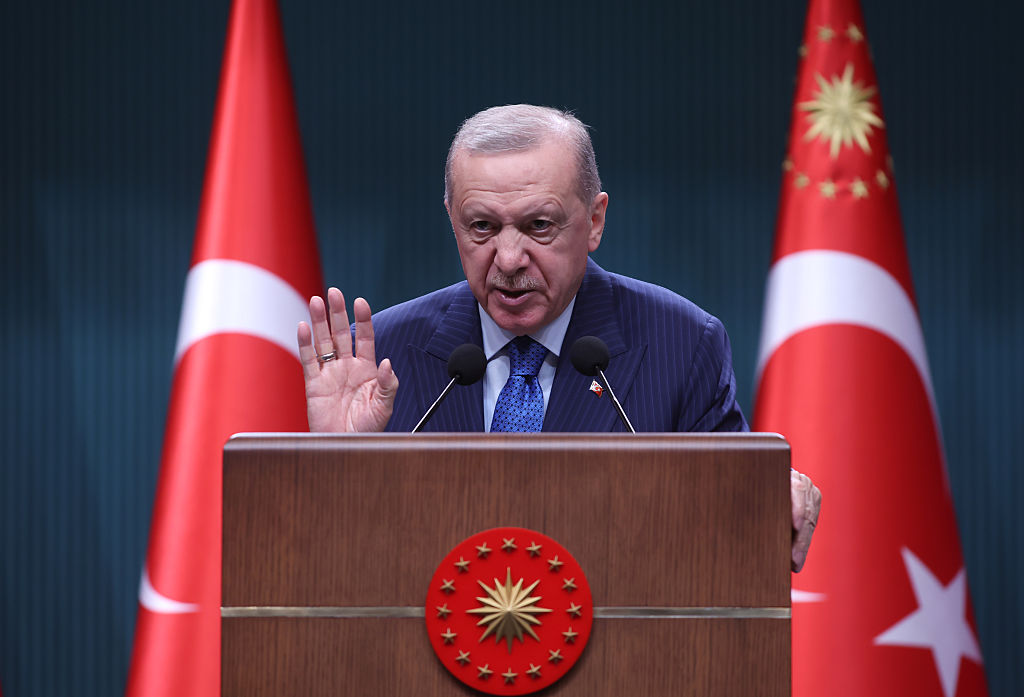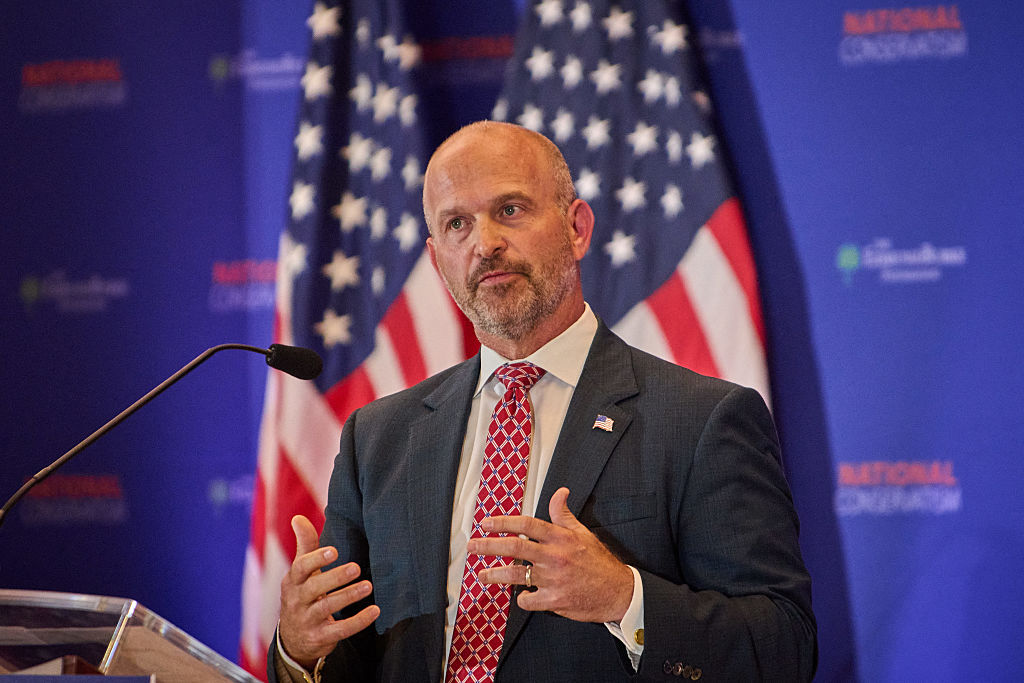Jerusalem, Israel
As 100,000 Israelis gathered outside Israel’s parliament, the Knesset, on Monday, to protest against Benjamin Netanyahu’s government’s plans to pass a series of laws dramatically weakening the power of the Supreme Court, the first speaker was Netanyahu himself.
Actually, it was a recording from an interview he had given in 2012, where he said that “without a strong and independent Supreme Court there can be no protection of rights. It’s what makes the difference between dictatorships and democracies.” The crowd jeered. There had been fear of violence at the demonstration. Police set up barricades, but there was no real need for them. The mood was surprisingly upbeat for a demonstration which claimed the end of Israeli democracy was nigh.
That’s because the protesters felt they were winning. It wasn’t just the success in mobilizing such a large number of people to Jerusalem on a weekday. It was also the surveys showing that a majority of Israelis oppose the government’s plans. Above all, it was the belief, privately shared by many in government, that the “legal reform” plans, presented on December 29, were rushed.
The perceived threat to liberal democracy has caused Israel’s normally non-political business community, especially the hi-tech companies and investors, to come out on the side of the protestors. International investment banks and credit rating agencies have begun to pay attention, as has the US government. The plan looks like a rare unforced error by an old grandmaster.
Among those who have worked with Netanyahu over the years, there’s surprise at how matters are turning out. A senior civil servant in economic affairs has said: “I just can’t work it out. He’s the most financially literate politician I’ve ever advised… He would never do anything to harm Israel’s prosperity, he’s much too risk averse. My only explanation is that, since he’s someone who has always been motivated by fear, there’s something now that he’s afraid of more than ruining the Israeli economy.”
A senior Likud politician and Netanyahu confidant, who is a true believer in clipping the wings of the Supreme Court, was aghast at how the judicial revolution was being sold to the public. “In presentational terms, it’s a complete disaster. I believe we can explain to the public how this will be good both for Israeli democracy and the economy, but there just doesn’t seem to have been any PR plan in place for such a major policy shift. This isn’t like Netanyahu at all.”
Allies and opponents alike agree that Netanyahu’s hallmarks have been meticulous planning and close attention to presentation. As far as Israeli politics are concerned, he wrote the handbook on this. ‘It’s clear that Bibi didn’t see the business community joining in the protests,’ says a government insider. ‘Perhaps he believed his own hype too much, that Israel’s prosperity is all thanks to him, and couldn’t imagine them turning on him.’
Why has Netanyahu turned on the justice system? The obvious reason is his own indictment on charges of bribery and fraud, and the trial which has been going on for three years in the Jerusalem District Court, with legal fees draining his resources. But it goes deeper than that.
“What really stung Netanyahu is that parties that in the past were prepared to sit with him in government have used the trial as an excuse to ostracize him,” says a Knesset member of a coalition party. “If it wasn’t for that, he may even have been prepared to take a break from frontline politics to fight the case in court. But the fact that parties from across the political spectrum used the trial as an excuse to get together and kick him out of office convinced him that they’re all in it together — his political rivals, the courts and the media. That it’s basically a coup. And now that he’s in office again, he’s back with a burning sense of vengeance.”
Since center-left parties have vetoed serving in government with an indicted prime minister, Netanyahu has had to shift his base increasingly to the right, thus consolidating the camp of religious and far-right parties who have an ideological hatred of Israel’s liberal-leaning and activist Supreme Court. In his previous coalitions, Netanyahu had partners both to the right and the left of Likud, giving him room for maneuver between their often contradicting demands. His new coalition is not nearly so malleable.
“I still don’t think Bibi wants to go all the way and totally suppress the court,” says one former aide. “I’m not sure he’s entirely lost his respect [for] the court, but he’s no longer in control of his own coalition. The attack on the legal establishment is maybe about 30 percent motivated by Netanyahu himself, but 70 percent controlled by his partners.”
Historically, Likud has had a liberal wing which combined staunch nationalism with a deep respect of the national institutions, and was for decades dominant in the party. It wasn’t just a matter of ideology. The party’s first leader, Menachem Begin, was scarred by the many years he spent in opposition, marginalized by Israel’s domineering founding prime minister, David Ben-Gurion. Begin and his followers idealized the Supreme Court as the protector of the rights of those who did not belong to the old Labour establishment. When he finally came to power in 1977, Begin vowed to act differently to his rivals and refused to replace the senior civil servants, despite many of them remaining loyal to the old regime.
Likud’s radical wing began to slowly grow after Begin’s resignation in 1983, frustrated at what they perceived as a left-wing “elite” that remained in power through its dominance of the legal system, civil service, media and academia, despite Likud winning election after election.
For most of his career Netanyahu trod a careful line — railing against the elites during election campaigns, but shying away from radical policies in government. That let him project the image of underdog champion while acting as Israel’s responsible elder statesman. Now he has deviated from that old winning strategy, and suddenly the grandmaster looks strangely amateurish.
This article was originally published in The Spectator’s UK magazine. Subscribe to the World edition here.

























